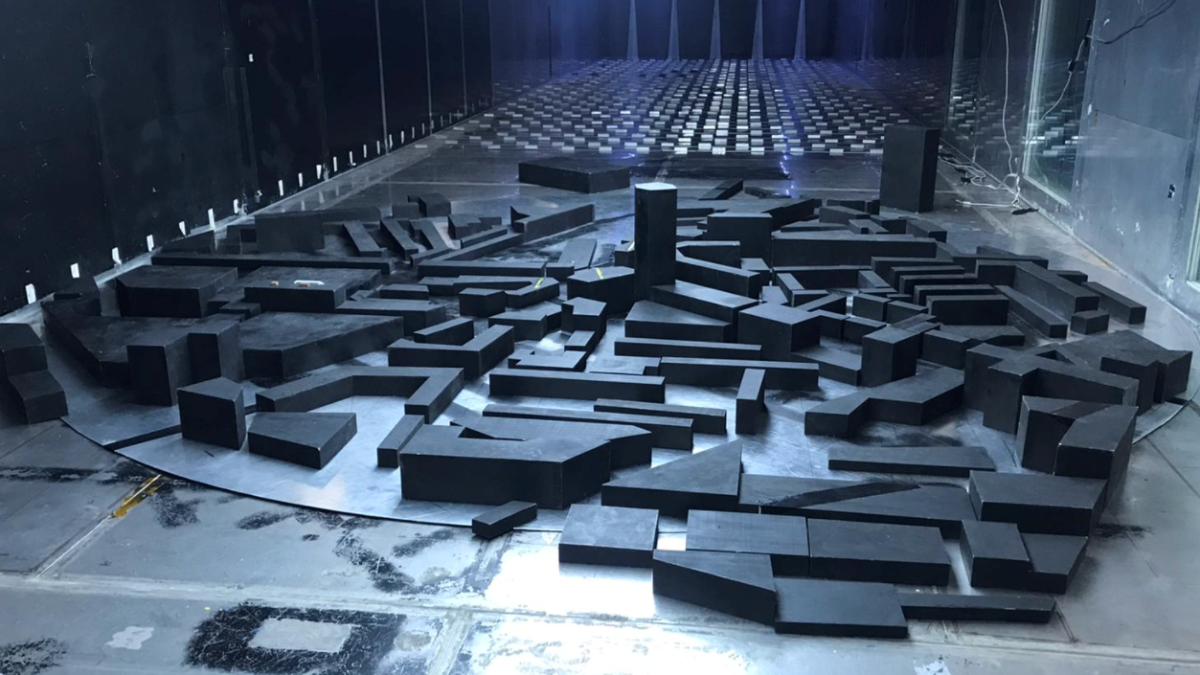EnFlo lab is part of £2.5m project to develop next generation weather models
Surrey’s EnFlo laboratory has won NERC funding for a four-year project to explore how weather forecasting models can help us address climate change.

A model of part of London in the Enflo wind tunnel.
The ASSURE (Across-scale processes in urban environments) consortium has been awarded £2.5m by NERC (National Environment Research Council) and is a collaboration between Surrey and the Universities of Reading (lead partner), Bristol, Southampton and Imperial College.
Climate change brings local and global consequences which affect most of the world’s urban population but only recently have cities been represented in weather forecast models. The ASSURE project is aimed at informing next generation weather models by understanding how physical setting, city geography and human activities combine to influence the urban atmosphere in space and time, and how air flow, temperature, moisture and air quality control processes interact.
The project will draw on over 30 years’ experience in atmospheric flow and pollutant dispersal within Surrey’s EnFlo laboratory – one of the few wind tunnels in the world capable of simulating realistic atmospheric conditions. Researchers led by Dr Matteo Carpentieri will conduct experiments using small scale models of an urban site (replicating an actual site in Bristol) as well as generic urban layouts. These small-scale experiments will be integrated with measurements on the actual site and high-fidelity computer simulations.
ASSURE will involve collaboration with local and international organisations including Bristol City Council, Clifton Suspension Bridge Trust, the European Centre for Medium-Range Weather Forecasts, UK Collaboratorium for Research in Infrastructure & Cities and the Met Office.
Dr Carpentieri comments: “This project will allow us to understand the effect of urban features at different scales (from single buildings to larger neighbourhoods as well as terrain features such as hills and valleys) on flow and pollutant dispersion, using a mid-size city like Bristol as a prototype.
“This will allow us to enhance our understanding of complex processes and improve models and meteorological/air quality forecasts, as they are not currently able to include such small-scale effects.”
Launched in December 2021, the ASSURE project will run alongside FUTURE, a three-year EPSRC project which focuses on the meteorological and environmental impact of groups of tall buildings in urban settings.
Discover our courses in mechanical engineering sciences.
